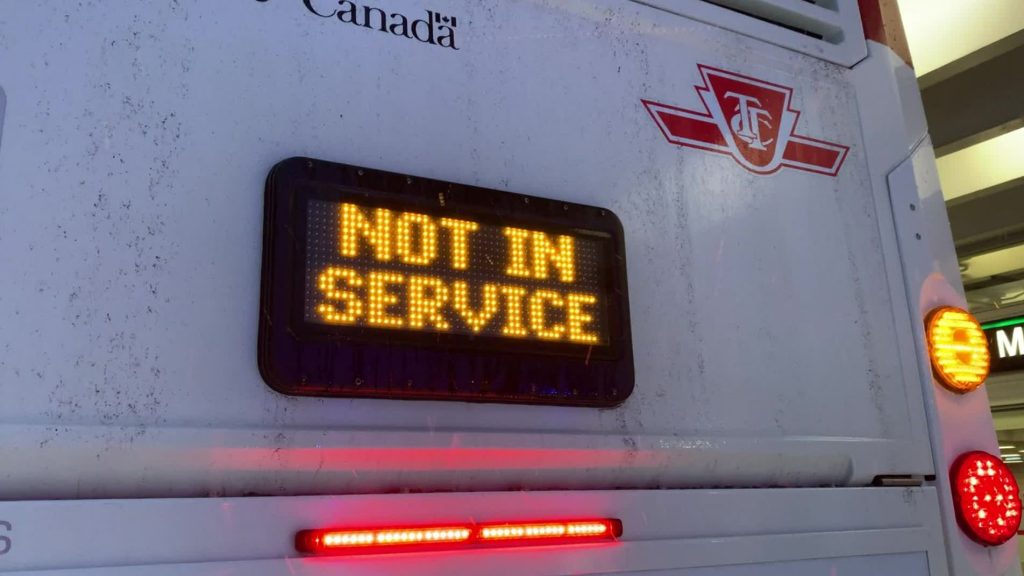Businesses boarding up to protect from theft, damage during coronavirus closures
Posted April 9, 2020 5:57 pm.
Last Updated April 9, 2020 6:08 pm.
With non-essential businesses across the province closed for the foreseeable future, empty streets and boarded up stores are the new normal in Toronto.
While grappling with loss of income, rent payments and trying to stay afloat through it all, business owners also find themselves in a vulnerable position as they try to protect their sites while they’re locked down.
The Downtown Yonge BIA is one of many in Toronto that is contending with the challenges businesses are faced with.
“This is a situation that nobody’s really seen,” says Mark Ganer, CEO of the Downtown Yonge BIA. “Everybody in the neighbourhood is working on a crisis situation.”
Ganer says they’re working on how to best support businesses that are still open while also advocating for those that are closed, based on their needs.
While he says they haven’t seen much theft, windows have been broken and they’re dealing with some property damage.
Many businesses do not have insurance to cover loss of business due to such crisis situations and are resorting to boarding up their storefronts as a means of loss prevention.
For a large clothing store with thousands of dollars worth of inventory on site for example, moving and storing that stock may not be cost effective. Boarding up the store fronts is the simplest way to protect the location.
“Boarding is a way to mitigate the risk based on what could be coming,” he says, adding they haven’t seen a rash of looting by any means, but prevention is better than cure.
BIAs across the city are partnering with one another and police to determine what other security measures are needed.
In collaboration with the police, the Downtown Yonge BIA has released an infographic to help businesses prevent crime.
Toronto police say they are actively responding to concerns from business owners who are worried they may be more susceptible to crimes.
“We’ve directed patrols to those specific areas, where there may be identified hot spots of vulnerability,” says police spokesperson Meaghan Gray.
While police have made arrests in parts of the city in connection to robberies, break and enters and looting over the last few weeks, Gray says it’s too early to tell if those cases are associated with the forced closures of businesses.
“We believe if we dug down into the numbers for break and enters we would probably see an increase in commercial break ins with a decrease in residential break and enters, given the number of people who are at home,” she says. “It’s a little too early to tell what we might be seeing by way of crime trends.”
However police are still collecting data in an effort to identify vulnerabilities. The Downtown Yonge BIA, which represents over 2,000 businesses, says new solutions are also coming out to better understand the impacts of this pandemic.
“There is definitely an impact study on the overall economic impact for the neighbourhood — that will be maintenance, repairs, those types of things,” says Ganer.
Along with independent businesses, shopping centers are also taking additional measures to protect the businesses inside.
The Eaton Center is limiting access through the mall and positioning security guards at access points to ensure guests are visiting for the essential services only.
In the meantime Ganer says BIAs are urging residents to support businesses that remain open, like restaurants.
“If you’ve got some cash, please order from a restaurant, get food delivered to your house, participate in all the programs that are out there and support as many businesses as you can.”










